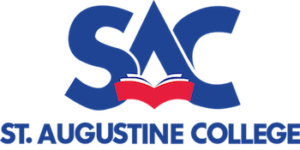
Saint Augustine’s College in Raleigh, N.C., was chartered as a “Normal School and Collegiate Institute” on this date in 1867. It was chartered by the Reverend J. Brinton Smith, D.D., secretary of the Freedman’s Commission of the Protestant Episcopal Church, and the Right Reverend Thomas Atkinson, D.D., Bishop of the Diocese of North Carolina. Bishop Atkinson became the first president of the Board of Trustees, and Dr. Smith was the first principal. The new school opened its doors for instruction on January 13, 1868. It is among over 100 Historically Black Colleges and Universities (HBCUs) in America.
The Episcopalian clergy established it for the education of freed slaves. Over time, this Black school has become one of the country's most highly respected private, accredited, coeducational institutions. The College's liberal arts department includes programs in business, computer science, teacher education, the natural sciences, mathematics, allied health, interdisciplinary studies, urban, social/international studies, theater and film, adult education, community development, communications, and military science, a required course for all members of the College's distinguished Army ROTC division.
The College's annual enrollment has grown to 1,400 students, about half of whom are from North Carolina, with the remainder from 37 states, the District of Columbia, the U.S. Virgin Islands, Jamaica, and 30 foreign countries. St. Augustine’s consists of nearly 100 dedicated men and women, all of whom are capable teachers and scholars. Their main campus spans over 55 acres, featuring 37 facilities and three registered historic landmarks: the Chapel, St. Agnes Hall, and Taylor Hall. St. Augustine's was the first HBCU in the nation to have its on-campus commercial radio and television stations: WAUG-AM 750 and WAUG-TV 68, Cable Channel 20. They provide a strong liberal arts base for all their students with flexibility.
They enable their students to make educational and career choices that are consistent with the widening opportunities and society's rapidly changing conditions. While technical skills are highly prized to ensure students a meaningful role in the marketplace, St. Augustine's also assists students in developing enriched perspectives to deal competently with an increasingly complex and interactive global society.
Some of St. Augustine's more than 10,000 living alums are North Carolina State Auditor, the Hon. Ralph Campbell, Jr., class of 1968, the first African American elected to that position in this state; George Williams, class of 65, internationally acclaimed track and field coach; Ruby Butler DeMesme, ’69, former assistant secretary of the Air Force (ret.) for workforce, installations, and environment; and Hannah Diggs Atkins, ’43, first African American woman elected to the Oklahoma House of Representatives (1968-1980).
Black American Colleges and Universities:
Profiles of Two-Year, Four-Year, & Professional Schools
by Levirn Hill, Pub., Gale Group, 1994
ISBN: 0-02-864984-2